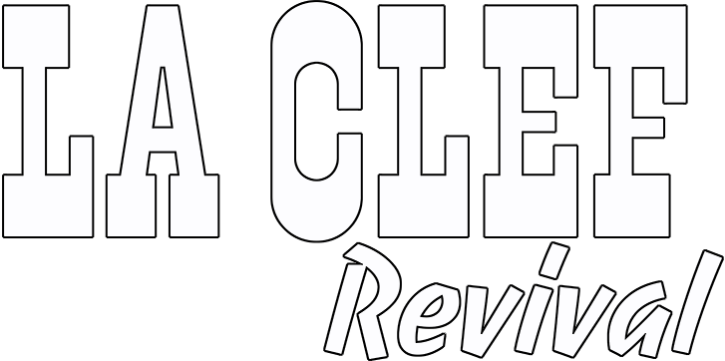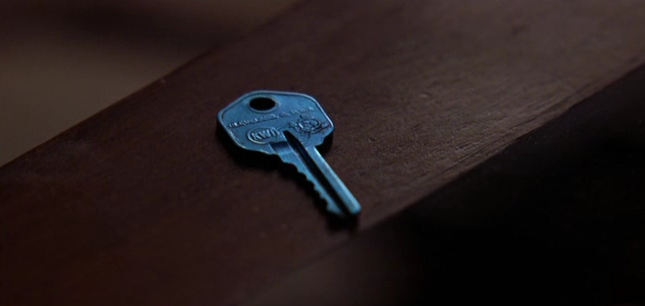La Clef screenig-rooms are full of stories. For 50 years, programmers, exhibitors, viewers, filmmakers and associations have shown and discovered films here. Those are almost always comitted, often rare and sometimes invisible. The building has also hosted a pizzeria, family parties, yoga classes and painting workshops – and most recently… us, for two and a half years.
Now that we’re outside its walls, we’re trying to buy La Clef.
What may seem futile to some, or relentless to others, is a fight for a certain idea of cinema, of sharing and common good, and today, it is important to us, with a little hindsight, to look back at the reasons why we decided to buy the place.
At the origin of the occupation was the desire to warn of the closure of Paris’s last assoiative cinema. These are the first demands: “We undertake to stop occupying the site as soon as we have written and oral confirmation, in front of journalistic and legal witnesses, that this cinema will remain an independent Parisian cinema and, first and foremost, an associative cinema.” As the occupation holds over time, the collective has to be organised. To ensure every evening a different open-price screening, we have to take turns and share our skills: we learn from each other how to screen, program and look after the premises. We have to clean up, print programs, handle the communication, manage bar stocks… Dedicated poles are created to share tasks, with training courses.
Little by little, we go from occupants to users.
From the very first months, a small group of people start thinking, without really believing in it back then, about a collective takeover of the cinema. A first project was born, called “The laboratory of the independent and associative cinema”. At tht time, it already combined broadcasting and creative activities around a meeting place: the multi-purpose hall, transformed into an associative bar during the first weeks of the occupation.
After the initial Covid-lockdown, reflections start again. How to ensure the long-term future of actions born in (and helped by) illegality? How to find an economic balance with collective programming at open-priced ticket? We meet the Nova cinema in Brussels, which has been operating under self-management for fifteen years, the Univers in Lille, the Vidéodrome in Marseille, as well as cinemas in Germany (B-Movie), England (Star and Shadow) and the Netherlands (Filmhuis Cavia)… We’re passionnate and encouraged by this overview: if such cinemas do exist elsewhere, why not in Paris?
All the places that inspire us have one thing in common: little or no rent. We quickly realise that it would be impossible to maintain our model of self-managed cinema if we remain dependent on a private landlord, in one of the most expensive districts of Paris. We also ruled out the possibility of public ownership: although the city could charge us a low rent, such agreements are revocable at any time, whenever our actions are considered unpleasing by a given political policy.
That’s when we came up with the crazy idea of buying La Clef ourselves!
But it doesn’t go without questions either: under what conditions can a collective, with some of its members claiming to come from the squat community, consider becoming a landowner ? And how can we guarantee the cinema’s continuity and independence in such circonstance?
As for every step of the occupation, we turned to collectives who already considered these questions. In particular, those who worked on land-pooling in the wake of the ZAD (Temporary Autonomous Zone or a Zone-to-defend of Notre-Dame des Landes and elsewhere). The Antidote assocuative fund, in particular, showed us idea of “usage property“. According to this model, La Clef’s property rights would be shared among all those who take care of the site: the cinema would become a common asset, which no one could appropriate for himself. The difficult par is that usage ownership does not exist in French law; we can only try to approximate it in practice, by adapting some private law’s tools.
Property notion has three attributes: usus, fructus and abusus. Usus is the right to use a thing. If, like Antidote, we take the example of a tree, it is the right to take a siesta in the shade of its foliage. Fructus is the right to make profits from the thing: to eat or sell the fruits from that tree. And abusus is the right to do whatever with the thing, and even to destroy it: to cut down the tree. To ensure that La Clef remains a cinema in the long term, we need to neutralize abusus. In the case of a property, this means removing it from the market so that the building can no longer be sold. How to do so ?
First, it is needed to separate ownership of the walls from their use. To do this, we use a legal arrangement: the property-title of La Clef will be acquired by an endowment fund, which will then delegate the use of the premises to an association through an emphyteutic lease. This is a long-term, low-rent lease that gives the tenant a real right to the property. The association would then have all the rights of an owner (usus and fructus), with the exception of the right of resale (abusus), which remains in the hands of the endowment fund.
Then, we write the statutes of our endowment fund, Cinéma Revival, in such a way as to make it almost impossible to fulfill this goal. An endowment fund is a sponsorship organisation designed to carry out a mission of general interest. In particular, it enables the acquisition of land and buildings on a collective basis, without a system of shares. There are no dividends to donors, apart from the tax benefits associated with donations. This means that the project cannot be undermined by people who want their shares back, and that power is in no way linked to the sums donated. Patrons, no matter how wealthy, cannot force the resale of the building; the decision rests solely with the fund’s administrators.
In Cinéma Revival, there are two colleges of trustees. The first is made up of users, i.e. members of the collective occupying La Clef. The second is made up of professionals, all chosen for their willingness to defend our model of cinema: a filmmaker (Céline Sciamma), an independent cinema mnager (Jean-Marc Zekri), a representative of the self-managed cinema Nova (Laurent Tenzer) and a specialist in usage ownership (Eric Arrivé). The resale of a building is only possible if the majority of users and the majority of professionals are in favor of it: an almost impossible situation. And under no circumstances could this hypothetical resale generate a profit; Cinéma Revival’s articles of association forbid any speculation.
They also stipulate that the user association must implement a collective programming, promote lesser-known works, charge fair prices and promote the transmission of knowledge within a horizontal organisation. As long as it complies with these key principles, it has complete programming freedom!
According to this set-up, La Clef will remain a self-managed, independent cinema for a long time to come.
In October 2020, Cinéma Revival launched its first call for donations.
At first, we didn’t really believe in it. At that time, the collective was fighting a legal battle with the owner and a media battle with the Groupe SOS, a giant in the so-called “social and solidarity economy”, interested in the building for its symbolic and property value. The creation of Cinéma Revival was first and foremost a way to get rid of the Groupe SOS – we were still a long way from imagining that three years later, in April 2023, we would actually be signing a provisional sale agreement with the owner.
The SOS Group waited more than a year, and finally withdrew its offer on the day we were evicted by the Police, after two and a half years of occupation and five weeks of non-stop open house festival. During these five weeks, we invited film-makers, artists, thinkers, spectators, volunteers, local residents, etc. to speak every evening at a forum that simply asked the question: why should La Clef be saved?
The answer lies in the meeting of the Zapatista delegation, the support screenings to Beirut, the packed screening-rooms from 6am to see a film chosen by Gisèle Vienne and Adèle Haenel, the arrival of Alain Cavalier who sleeps in a corner of the cinema, or that of Leos Carax who walks through a crowd so dense that we fear for him, the spectators united in the street during the open-air screenings of the covid lock-down time, the assembly of dancers at the Opéra-Paris during the movement against pension reform, the concert by students from the Paris jazz conservatoire, and so on. It’s about the hundreds of people who flock to La Clef screenings, all those friends, local residents, students, film professionals and activists who come to share a film, a coffee or a beer, who go behind the bar or into the kitchen, who suggest some films and come to present them, who do the washing up or the cleaning to help us stand.
If today we’re still fighting to buy La Clef, it is because we want to give this space of freedom to everyone, so that others like us can learn, pass on and invent. It is because we believe that it’s necessary for such places to exist, and that they should exist in the heart of the city, be accessible and open. Because we also believe that films are a source of exchange and debate, and that they are never better shared than in the cinema room.
What was only a dream two years ago is very close to become a reality. But there’s still a long way to go – every step of the way is a struggle, a mountain to climb, and the final straight line is not the easiest.
But we’re holding our breath, because of your support. Thank you – and see you soon, we hope so!
A FEW KEYS TO…
A better understanding of usage’ ownership :
lafonciereantidote.org, “Inspirer” section (in French)
Radio Galoche, program “Despéculer!” (in French)
Manifesto of the Kali collective kitchen
Discover alternative cinemas:
Members of the European Kino Climates network
Find out more about our project and make a donation.


